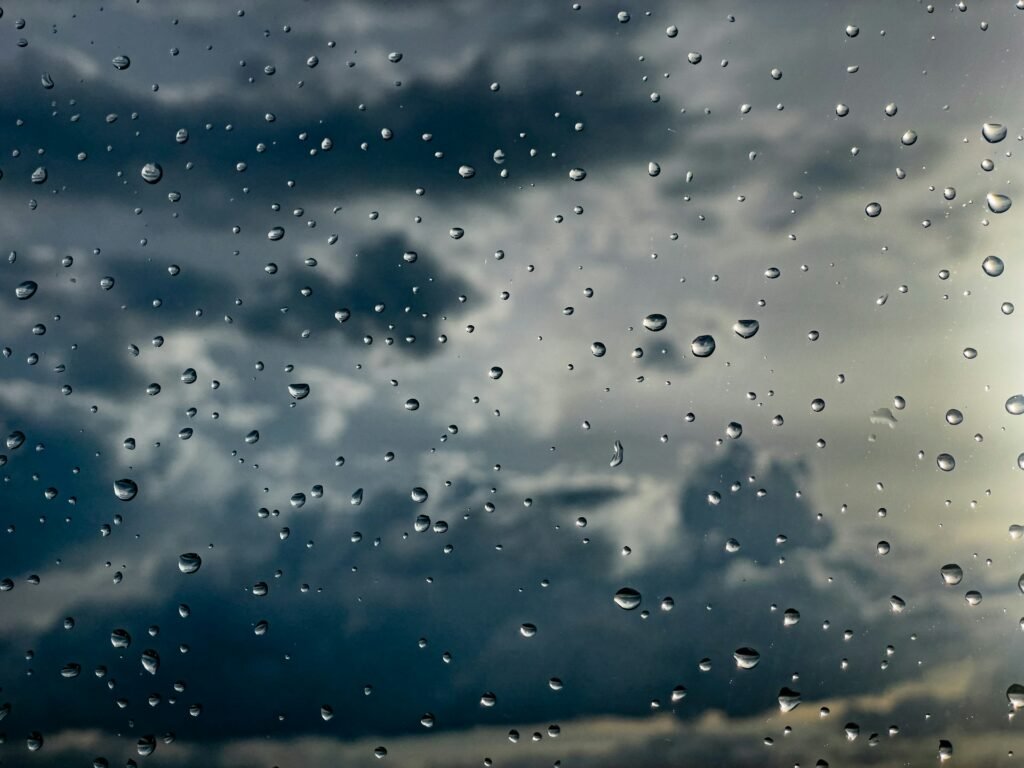Is it illegal to collect rainwater in Oregon? This question might puzzle those interested in sustainable living practices or simply looking to reduce their water bill. In Oregon, the collection of rainwater is governed by specific regulations that enable residents to harness this natural resource responsibly. The key lies in understanding the state’s unique approach to water rights and how they impact your ability to collect and use rainwater.
As you delve into the nuances of these regulations, it becomes clear that Oregon encourages the practice within certain guidelines. By adhering to the state’s framework, collecting rainwater can be both a legal and beneficial endeavor, contributing to conservation efforts and individual sustainability. Stay tuned as we unravel the details that will keep your rain barrels within the bounds of the law and the environment in good standing.

Introduction to Rainwater Collection in Oregon
In Oregon, rainwater collection is viewed as a practical approach to managing the state’s water resources. With a climate that varies from coastal rainforests to arid deserts, Oregonians recognize the value of capturing rainwater for various uses, from gardening to non-potable household applications.
Exploring the Legality of Rainwater Harvesting
The legality of collecting rainwater in Oregon hinges on adherence to specific state guidelines. While it is generally permissible, understanding the nuances of these regulations is crucial for anyone considering setting up a rainwater harvesting system.
• Oregon’s Position on Rainwater Collection
Oregon supports rainwater collection from rooftops as a sustainable water management practice. This approach aligns with the state’s broader environmental goals and is legally acceptable as long as it does not infringe on established water rights.
The Environmental and Practical Benefits of Collecting Rainwater
Collecting rainwater in Oregon offers numerous benefits, from reducing the demand for municipal water supplies to providing a dependable water source for landscaping and gardening during drier months, thereby promoting eco-friendly living and water conservation.
• Conservation and Sustainability Efforts in Oregon
Oregon is dedicated to conservation and sustainability, and collecting rainwater plays a significant role in these efforts. By capturing and using rainwater, residents can contribute to the state’s environmental goals while also enjoying the practical benefits of this resource.
Navigating State Incentives for Rainwater Collection
Oregon offers various incentives to encourage residents to collect rainwater, recognizing the positive impact it has on conservation and stormwater management. Exploring these incentives can lead to cost savings and support for your rainwater harvesting endeavors.
• Rebates and Credits for Oregon Residents
Oregon residents looking to invest in rainwater collection systems may benefit from rebates and tax credits. These financial incentives are designed to offset the initial costs of installation, making it more affordable for homeowners to implement these eco-friendly systems. Additionally, local municipalities may offer their own incentives, further supporting residents in their efforts to conserve water and manage stormwater effectively.

Oregon’s Rainwater Collection Laws Explained
Oregon’s rainwater collection laws are designed to facilitate responsible usage while protecting water rights. Understanding these laws is essential for any resident interested in implementing a rainwater harvesting system.
Deciphering Oregon’s Water Rights and Ownership
Water rights in Oregon are a key factor in rainwater collection. The state maintains a complex system of water ownership that must be navigated to ensure legal compliance when setting up a rainwater harvesting system.
• The State’s Jurisdiction Over Water Resources
Oregon has jurisdiction over all water resources within its boundaries, a fact that shapes the legal framework surrounding rainwater collection. The state prioritizes the sustainable and equitable use of water, ensuring that all practices, including rainwater harvesting, align with these overarching principles.
How Oregon’s Rainwater Collection Laws Compare Nationally
When compared to other states, Oregon’s rainwater collection laws are relatively permissive, allowing individuals to harness this natural resource while still respecting the rights of other water users.
• Contrasts With States Like California and Colorado
In contrast to Oregon, states like California and Colorado have historically implemented more restrictive policies on rainwater collection. However, recent changes have seen these states adopt a more lenient stance, recognizing the benefits of rainwater harvesting for individual and environmental health.
Permit Requirements for Rainwater Harvesting in Oregon
While Oregon allows rainwater collection, certain systems may require permits. Understanding when a permit is necessary is crucial for legal compliance and uninterrupted operation of your rainwater harvesting system.
• When and Why Permits are Necessary
In Oregon, permits for rainwater collection are generally not required for residential rain barrels, but larger or more complex systems may need approval. The reason for permits is to ensure that systems are properly designed and do not negatively impact stormwater management or infringe upon existing water rights.

Restrictions and Limitations on Rainwater Collection
While you can harvest rainwater in Oregon, it’s essential to understand that there are specific restrictions designed to manage the practice responsibly. These guidelines ensure that rainwater collection is beneficial and sustainable, aligning with the state’s overall water conservation goals.
Understanding the Specific Restrictions in Oregon
In Oregon, unlike states such as North Carolina or Rhode Island, the collection of rainwater is subject to certain conditions. These restrictions are in place to maintain a balance between personal use and ecological impact, ensuring that the state’s water resources are not compromised.
• Limitations on Usage and Storage Capacity
Oregon’s approach to rainwater collection includes limitations on both usage and storage capacity. While small-scale systems generally do not require permits, larger systems might, especially if they have the potential to affect the natural flow of water. It’s important to adhere to these regulations to ensure your system is legal and environmentally sound.
Rainwater Harvesting Systems: What’s Allowed in Oregon
Before setting up a rainwater collection system, you need to know what’s permissible under Oregon law. The state allows for the capture and use of rainwater, primarily from rooftops, through systems that are designed to minimize any adverse effects on water rights and the environment.
• Acceptable Types of Collection Systems
The types of collection systems allowed in Oregon are quite flexible, provided they adhere to state guidelines. These include systems that collect rain from impervious surfaces like rooftops and direct it into storage containers. Such setups help in mitigating stormwater runoff while supplying households with non-potable water for various uses.
Incentives and Support for Rainwater Harvesting
To promote sustainable water management, Oregon offers support and incentives for residents who choose to implement rainwater harvesting systems. These incentives are designed to lower the barriers to entry and encourage more homeowners to take advantage of rainwater as a resource.
State Programs Encouraging Rainwater Collection
Oregon’s state programs aim to encourage rainwater collection by providing residents with the information and resources they need to get started. These programs often collaborate with local water conservation groups to spread awareness and promote the benefits of rainwater harvesting.
• Grants and Incentives Offered to Oregonians
The state of Oregon offers a variety of grants and incentives to residents who integrate rainwater harvesting into their homes and landscapes. These financial encouragements can significantly reduce the installation costs and provide a quicker return on investment, making sustainable water practices more accessible.
Practical Advice for Oregon Residents
If you’re considering setting up a rainwater collection system in Oregon, practical knowledge and preparation are key. It’s important to familiarize yourself with the legal requirements and best practices to ensure a successful and compliant installation.
How to Legally Set Up a Rainwater Collection System
Legally installing a rainwater collection system in Oregon requires understanding the regulations that govern water rights and usage. Knowing these rules will help you design a system that meets legal standards and serves your needs effectively.
• Step-by-Step Compliance Guide
A step-by-step compliance guide can assist you in navigating the permit process for larger rainwater harvesting systems. This guide can help ensure that your system aligns with state water laws, from the initial planning stages to the final inspection and approval.
Maintenance and Safety Tips for Rainwater Harvesting
Maintaining your rainwater harvesting system is crucial for ensuring water quality and longevity. Regular checks and cleaning are necessary to keep the system functioning efficiently and safely.
• Preventing Contamination and Mosquito Breeding
To prevent contamination and mosquito breeding, your rainwater collection system should include features like filters and covers. These will help keep the water clean and deter mosquitoes from using your rainwater storage as a breeding ground, ensuring a safe water supply for your non-potable needs.

Addressing Common Concerns and Misconceptions
As you explore the possibility of collecting rainwater, you might encounter various myths and misconceptions. It’s essential to sift through these to understand the true legal and environmental landscape of rainwater collection in Oregon. By addressing common concerns, you can make informed decisions about how to implement rainwater harvesting practices that comply with state regulations and benefit the ecosystem.
Debunking Myths About Rainwater Collection in Oregon
Many residents believe that it is outright illegal to collect rainwater in Oregon. However, this is a misconception. The truth is that Oregonians are allowed to capture rainwater under specific conditions. Understanding these conditions can help you take advantage of rainwater harvesting while staying within legal boundaries.
• Clarifying Legal Misunderstandings
In Oregon, the collection of rainwater using rain barrels is in fact legal, particularly when it is done from rooftop surfaces. These regulations aim to encourage responsible rainwater harvesting while ensuring that water rights and resource allocations remain respected. If you’re considering setting up a rainwater collection system, familiarizing yourself with these legal nuances is a crucial step.
The Impact of Rainwater Harvesting on Local Ecology
Collecting rainwater has implications beyond just providing you with an alternative water source. It plays a significant role in the broader context of Oregon’s ecological balance and sustainability efforts. Let’s delve into how rainwater harvesting aligns with environmental stewardship.
• Balancing Human Use with Environmental Stewardship
Responsible rainwater harvesting contributes positively to stormwater management by reducing runoff and alleviating stress on local water infrastructure. When done correctly, capturing rainwater can help mitigate flooding risks and protect water quality in nearby streams and rivers, thus supporting the delicate balance of local ecosystems.
Resources and Further Reading for Oregonians
If you’re seeking a deeper understanding of rainwater collection laws in Oregon or need guidance on setting up your own system, there are numerous resources available. These resources can provide you with the knowledge necessary to responsibly and legally harvest rainwater in the state.
Where to Find Detailed Information on State Laws
To ensure you’re getting the most accurate and up-to-date information on rainwater collection laws in Oregon, consult official state resources. Government websites and documentation are your primary sources for legal specifics and any recent changes in regulations.
• Governmental and Environmental Organization Resources
State agencies such as the Oregon Water Resources Department and environmental organizations offer comprehensive resources. They provide guidelines, FAQs, and detailed pamphlets that explain state policies on rainwater harvesting, making it easier for you to navigate the legal landscape.
Educational Materials for Responsible Rainwater Harvesting
Educational materials can be immensely helpful in understanding the best practices for rainwater harvesting. These materials often include tips on system design, maintenance, and maximizing the benefits of your rainwater collection setup.
• Workshops, Seminars, and Online Courses in Oregon
For hands-on learning, consider attending workshops, seminars, and online courses offered throughout Oregon. These events are often hosted by sustainability organizations and local community groups, providing practical advice and networking opportunities with experienced rainwater harvesters.
Conclusion: The Future of Rainwater Harvesting in Oregon
Oregon’s approach to rainwater harvesting systems has evolved, showing a commitment to environmental stewardship and practical water management. With clear guidelines for the installation and maintenance of these systems, residents are empowered to responsibly collect and use rainwater. This includes the use of rain gardens and stormwater systems that mitigate stormwater runoff, alongside installing cisterns for storing rainwater.
The state’s incentives and educational resources further support this sustainable practice, signaling a promising outlook for its continued adoption and refinement. Moving forward, it is likely that we will see further integration of rainwater harvesting into Oregon’s conservation efforts, as the state seeks to balance human needs with ecological considerations.
Case studies demonstrate the effectiveness of these systems in both urban and rural settings, providing a model for others to follow. For those still questioning, “Is it Illegal to Collect Rainwater in Oregon,” the answer is clear: Oregon supports rainwater collection when done in compliance with state regulations, ensuring a future where this resource is used wisely and sustainably.


